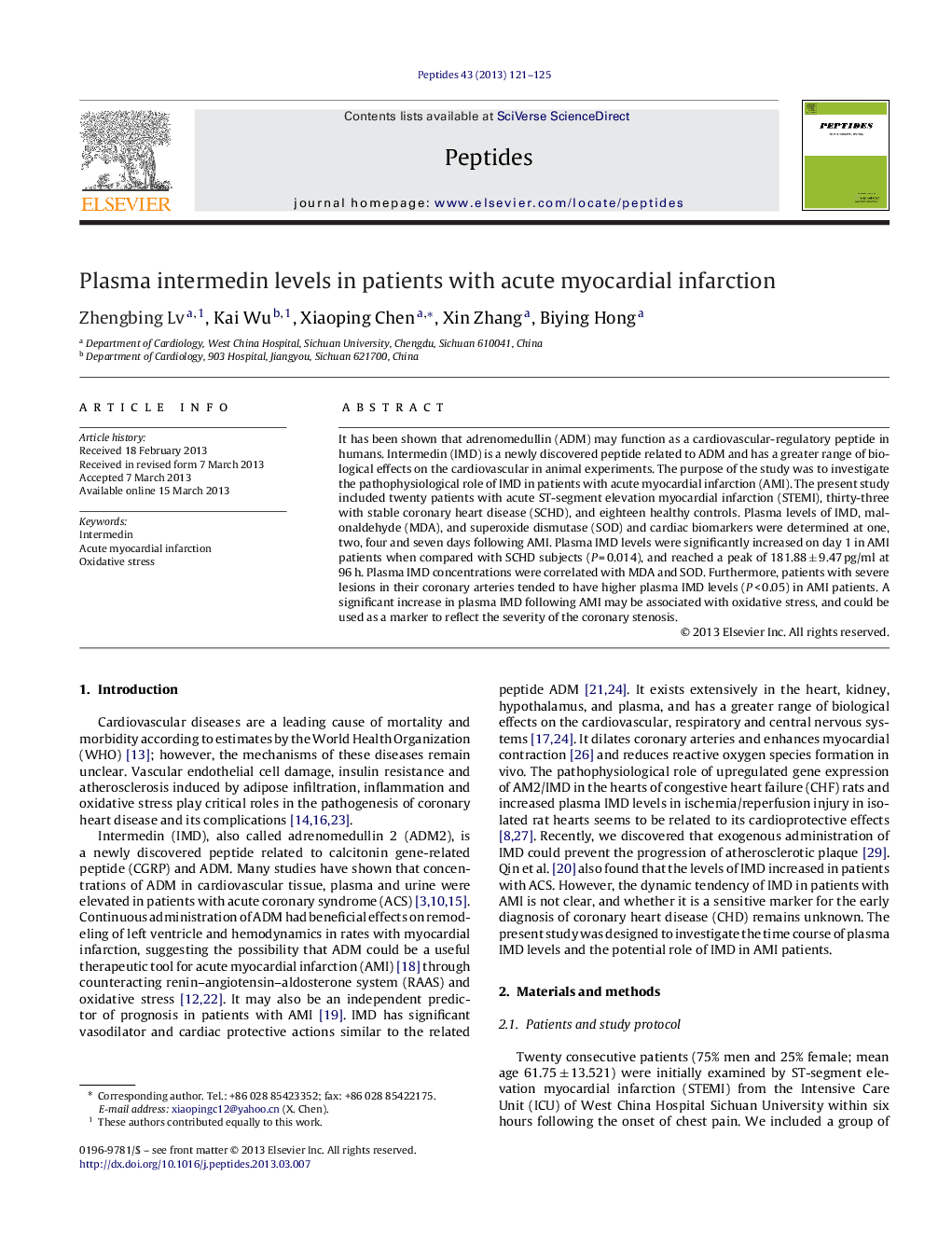| Article ID | Journal | Published Year | Pages | File Type |
|---|---|---|---|---|
| 8348784 | Peptides | 2013 | 5 Pages |
Abstract
It has been shown that adrenomedullin (ADM) may function as a cardiovascular-regulatory peptide in humans. Intermedin (IMD) is a newly discovered peptide related to ADM and has a greater range of biological effects on the cardiovascular in animal experiments. The purpose of the study was to investigate the pathophysiological role of IMD in patients with acute myocardial infarction (AMI). The present study included twenty patients with acute ST-segment elevation myocardial infarction (STEMI), thirty-three with stable coronary heart disease (SCHD), and eighteen healthy controls. Plasma levels of IMD, malonaldehyde (MDA), and superoxide dismutase (SOD) and cardiac biomarkers were determined at one, two, four and seven days following AMI. Plasma IMD levels were significantly increased on day 1 in AMI patients when compared with SCHD subjects (P = 0.014), and reached a peak of 181.88 ± 9.47 pg/ml at 96 h. Plasma IMD concentrations were correlated with MDA and SOD. Furthermore, patients with severe lesions in their coronary arteries tended to have higher plasma IMD levels (P < 0.05) in AMI patients. A significant increase in plasma IMD following AMI may be associated with oxidative stress, and could be used as a marker to reflect the severity of the coronary stenosis.
Related Topics
Life Sciences
Biochemistry, Genetics and Molecular Biology
Biochemistry
Authors
Zhengbing Lv, Kai Wu, Xiaoping Chen, Xin Zhang, Biying Hong,
